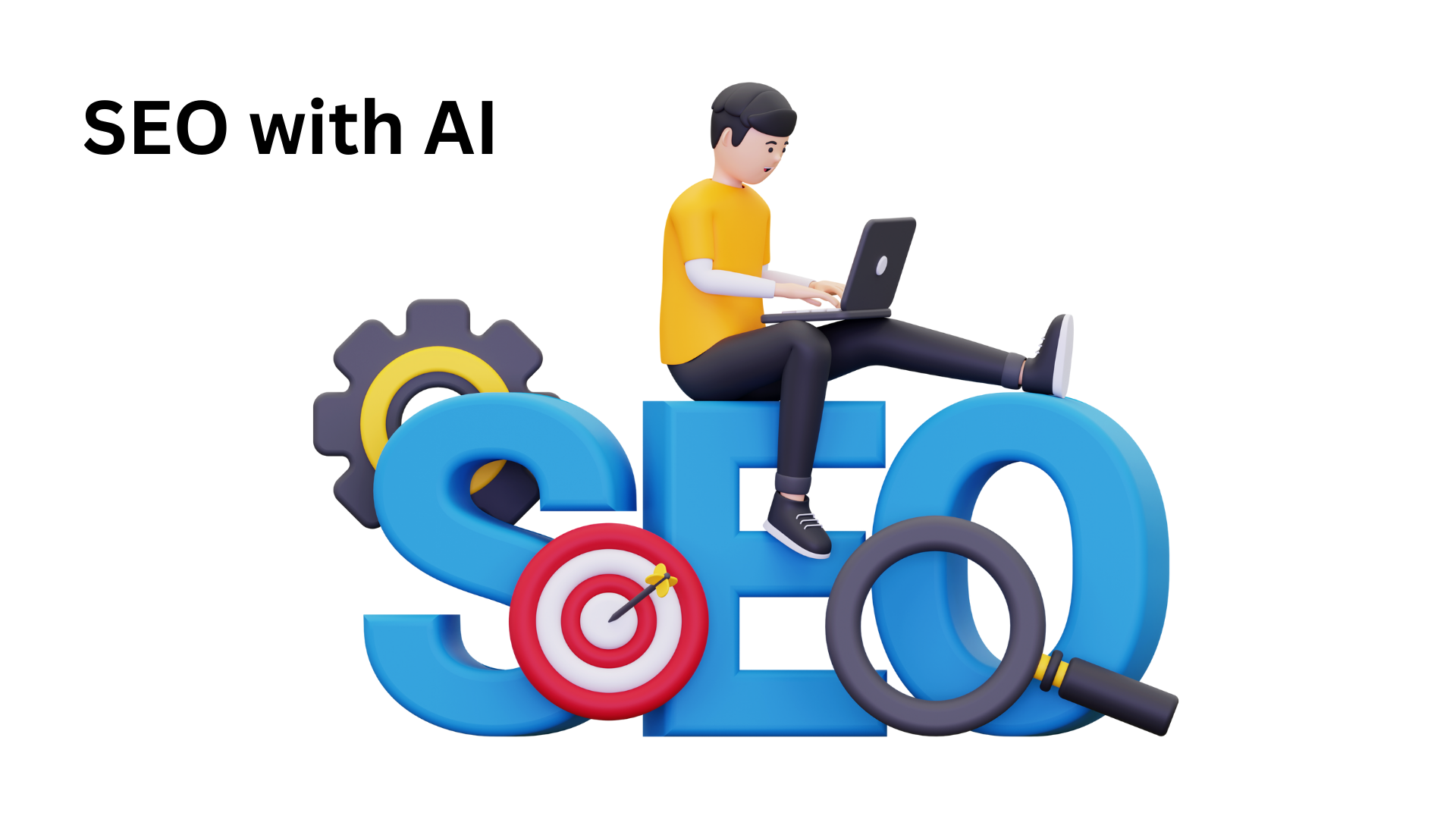Search Engine Optimization (SEO) has always been about improving website visibility and ranking in search results. But with the rapid advancements in Artificial Intelligence (AI), SEO strategies are evolving faster than ever. Today, AI is more than just a buzzword; it’s a game-changer for marketers looking to optimize their content and websites more effectively. But what exactly does it mean to incorporate AI into SEO, and what elements are foundational for SEO with AI?
In this beginner-friendly guide, we’ll break down the key components of AI-powered SEO, show you how it works, and explain how you can leverage it to boost your rankings. If you’re curious about using AI to improve your SEO but unsure where to start, this post is for you.
As the digital landscape becomes more competitive, traditional SEO tactics alone may not be enough to keep your site on top. AI is transforming the way search engines like Google process and rank content. With sophisticated algorithms and machine learning, AI can analyze data at a scale and speed that humans can’t match. But don’t worry—embracing AI doesn’t mean you need to become a data scientist!
Fun Fact: Did you know that Google’s RankBrain, an AI system, helps process over 15% of daily searches that have never been seen before? This makes AI a crucial tool for understanding new user queries and delivering relevant content.
Section 1: Background and Overview of AI in SEO
The Evolution of SEO and the Role of AI
Search engines have evolved significantly over the past few decades. In the early days, keyword stuffing and link building were enough to secure high rankings. But as user behavior and technology evolved, search engines adapted. Enter AI—systems like Google’s RankBrain and BERT were developed to understand the intent behind search queries and provide more accurate results.
How AI Impacts Search Algorithms
AI is used to process large amounts of data, recognize patterns, and make decisions based on user behavior and search trends. This enables search engines to:
- Understand context: AI can comprehend the nuances of language, helping search engines deliver more relevant results.
- Predict user intent: By analyzing past searches, AI can predict what users are looking for even if the search term is vague or complex.
- Personalize search results: AI tailors search results based on location, search history, and preferences, ensuring users receive content that best suits their needs.
Section 2: Key Elements of AI-Powered SEO
1. Keyword Research Using AI Tools
Keyword research is a cornerstone of SEO. Traditionally, this involved manually analyzing search volumes and competition. AI has revolutionized this process by providing tools that automate keyword research and offer deeper insights.
- Tools to Consider: Platforms like Ahrefs, SEMrush, and Moz use AI to suggest relevant keywords, analyze trends, and predict keyword performance.
- How It Works: AI tools use Natural Language Processing (NLP) to understand the semantics of a query, suggesting long-tail keywords and search phrases that traditional tools may overlook.
2. Content Optimization with AI
Creating high-quality content that ranks well is challenging, but AI makes it easier by offering insights into what makes top-ranking pages successful.
- Content Analysis: AI tools like Clearscope and Frase analyze top-performing content for your target keywords, helping you identify gaps and optimize for better readability and engagement.
- On-Page SEO Suggestions: AI can suggest optimal word count, keyword density, and even headline structures to make your content more appealing to both users and search engines.
3. User Experience and Behavioral Analytics
AI is also foundational in understanding user behavior on your site. Search engines like Google prioritize user experience (UX) metrics like page load speed, bounce rate, and dwell time.
- How AI Helps: AI-powered analytics tools can provide heat maps, track scrolling behavior, and even predict how users will interact with your site.
- Tip: Use tools like Hotjar or Crazy Egg to get visual representations of user activity on your site and optimize based on these insights.
4. Voice Search Optimization
With the rise of smart speakers and voice assistants, optimizing for voice search is critical. AI plays a major role here, as it helps understand conversational language.
- Focus on Natural Language: Voice search queries are usually longer and more conversational. Optimize your content for question-based phrases like “How do I…?” or “What is the best way to…?”
- Use Structured Data: Implementing structured data (schema) helps search engines understand your content and provide direct answers for voice queries.
5. Link Building and AI-Powered Outreach
Link building is still crucial for SEO, but AI can streamline the process by automating outreach and identifying the best sites for link opportunities.
- AI Tools for Link Building: Tools like BuzzStream and Pitchbox use AI to analyze potential link partners and automate outreach, making the process faster and more effective.
- Strategy: Focus on building high-quality backlinks by targeting authoritative sites in your niche.
Section 3: Examples and Case Studies
How AI Transformed XYZ Company’s SEO Strategy
One of the best ways to understand the power of AI in SEO is through real-world success stories. Take the case of XYZ Company (fictional), which struggled to rank for competitive keywords despite investing heavily in content.
Problem: XYZ’s content was relevant but failed to engage users and lacked proper keyword targeting.
Solution: By using AI-powered tools like MarketMuse and Surfer SEO, XYZ revamped their content strategy. AI helped identify low-competition, high-value keywords and suggested content improvements based on competitors.
Result: Within three months, XYZ saw a 60% increase in organic traffic and achieved top 10 rankings for several target keywords.
Section 4: Practical Tips to Implement AI in Your SEO Strategy
Ready to get started with AI-powered SEO? Here are some actionable steps:
- Choose the Right Tools: Start with tools that suit your needs. For keyword research, try Ahrefs or SEMrush. For content optimization, explore Clearscope or Frase.
- Use AI for Content Planning: Create content that aligns with search intent by using AI tools to analyze user queries and behavior.
- Leverage AI for On-Page SEO: Use AI to analyze existing content, optimize headings, and suggest internal linking opportunities.
- Experiment and Adapt: SEO is not a one-time task. Use AI to continuously track performance, experiment with new strategies, and adapt based on insights.
Conclusion: Embrace the Future of SEO with AI
AI is no longer a luxury in SEO; it’s a necessity. By understanding and implementing the foundational elements of AI-powered SEO, you can not only improve your rankings but also enhance user experience and stay ahead of the competition. Start small by incorporating AI tools into your existing strategy, and gradually expand your use as you become more comfortable.
FAQ:
1. What is AI-powered SEO?
AI-powered SEO refers to the use of Artificial Intelligence technologies, such as machine learning and natural language processing (NLP), to enhance search engine optimization strategies. It helps automate processes like keyword research, content optimization, and understanding user intent.
2. Why is AI important for SEO?
AI helps in better understanding search intent, automating repetitive tasks, and providing deep insights into user behavior and search trends. It enables more effective content optimization and improved decision-making for better search engine rankings.
3. What are the foundational elements of SEO with AI?
The foundational elements include AI-powered keyword research, content optimization, behavioral analytics, voice search optimization, and automated link building. These tools and strategies help refine SEO efforts for maximum impact.
4. Which AI tools are best for SEO?
Some popular AI tools for SEO include Ahrefs, SEMrush, Clearscope, Frase, MarketMuse, Surfer SEO, and BuzzStream. Each tool offers unique features to enhance various aspects of your SEO strategy.
5. How does AI improve keyword research?
AI tools use advanced algorithms to analyze search patterns, identify keyword opportunities, and predict search trends. This helps marketers find relevant, low-competition keywords and optimize content more effectively.
6. Can AI help with content creation and optimization?
Yes, AI can assist in content planning, suggest content improvements, analyze readability, and even automate parts of the writing process. Tools like Clearscope and Frase are popular for AI-driven content optimization.
7. How does AI impact user experience (UX) in SEO?
AI analyzes user behavior to identify UX issues like slow loading times or high bounce rates. By using AI insights, marketers can improve site navigation, content layout, and overall usability, which enhances both rankings and user satisfaction.
8. Is AI suitable for small businesses looking to improve SEO?
Absolutely! AI-powered tools can be scaled according to budget and needs. They offer small businesses competitive insights and automation capabilities that were previously only accessible to larger companies.
9. How can AI help with voice search optimization?
AI enables voice search optimization by analyzing conversational language patterns and suggesting content that answers natural language queries. Implementing structured data also helps AI understand and rank voice search results better.
10. What is the future of SEO with AI?
The future of SEO will see even deeper integration of AI in understanding user intent, automating routine tasks, and predicting search trends. As AI evolves, SEO strategies will become more data-driven and personalized, making AI a crucial element for staying competitive.




